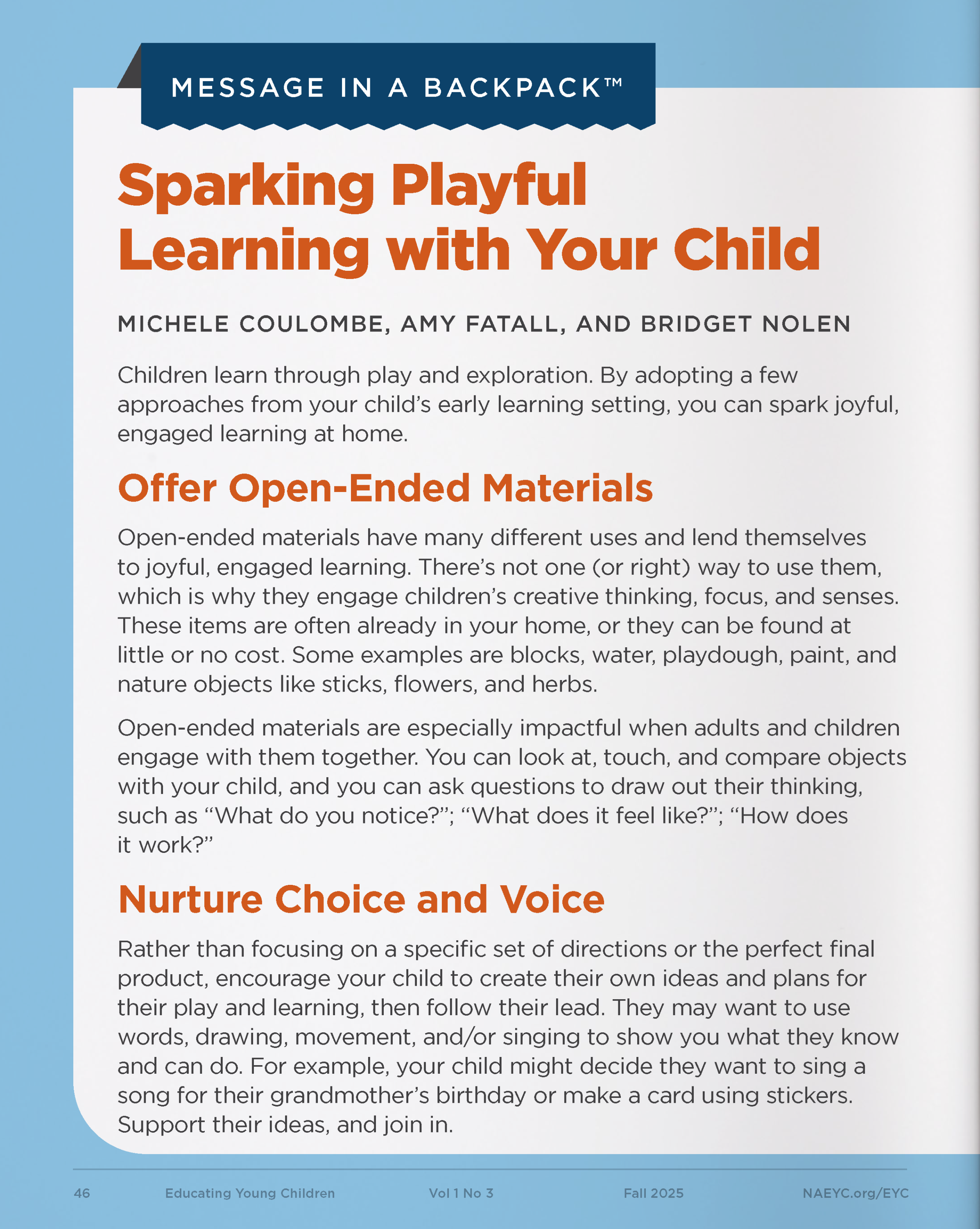Message in a Backpack™. Sparking Playful Learning with Your Child

You are here
Children learn through play and exploration. By adopting a few approaches from your child’s early learning setting, you can spark joyful, engaged learning at home.
Offer Open-Ended Materials
Open-ended materials have many different uses and lend themselves to joyful, engaged learning. There’s not one (or right) way to use them, which is why they engage children’s creative thinking, focus, and senses. These items are often already in your home, or they can be found at little or no cost. Some examples are blocks, water, playdough, paint, and nature objects like sticks, flowers, and herbs.
Open-ended materials are especially impactful when adults and children engage with them together. You can look at, touch, and compare objects with your child, and you can ask questions to draw out their thinking, such as “What do you notice?”; “What does it feel like?”; “How does it work?”
Nurture Choice and Voice
Rather than focusing on a specific set of directions or the perfect final product, encourage your child to create their own ideas and plans for their play and learning, then follow their lead. They may want to use words, drawing, movement, and/or singing to show you what they know and can do. For example, your child might decide they want to sing a song for their grandmother’s birthday or make a card using stickers. Support their ideas, and join in.
Encourage Problem Solving
Is there a hole in a bucket? Has a toy stopped working? Are the plants drooping? Ask your child to help solve real-life problems. Encourage them to ask questions, make plans, test out ideas, and decide on solutions. While the problems should be manageable for them, it’s okay for your child to put in some effort and work through unexpected issues. Help them problem solve by asking questions, such as “How can we solve this problem?”; “What do you think we should do first?”; “What other steps can we take?”; “What materials do you need?”
Respond in Positive, Playful Ways
A warm tone of voice and playful actions—like singing, using puppets, and laughing—support children’s learning. So do creating and revisiting positive experiences, like retelling a favorite story, listening again to favorite songs, rereading familiar books, and looking at photographs of people and events that are meaningful to you and your child. Respond enthusiastically to what your child says. Add your own thoughts, and continue the conversation.
This message is meant to be printed out, photocopied, and sent home with children as a resource for families!
Copyright © 2025 by the National Association for the Education of Young Children. See permissions and reprints online at NAEYC.org/resources/permissions.
Michele Coulombe is a clinical specialist who teaches courses and supervises student teachers at The College of New Jersey in Ewing, New Jersey.
Amy Fatall is an early childhood consultant and curriculum developer based out of Chicago.
Bridget Nolen is the director of early literacy at Mastery Charter Schools in Philadelphia, Pennsylvania, and Camden, New Jersey.
